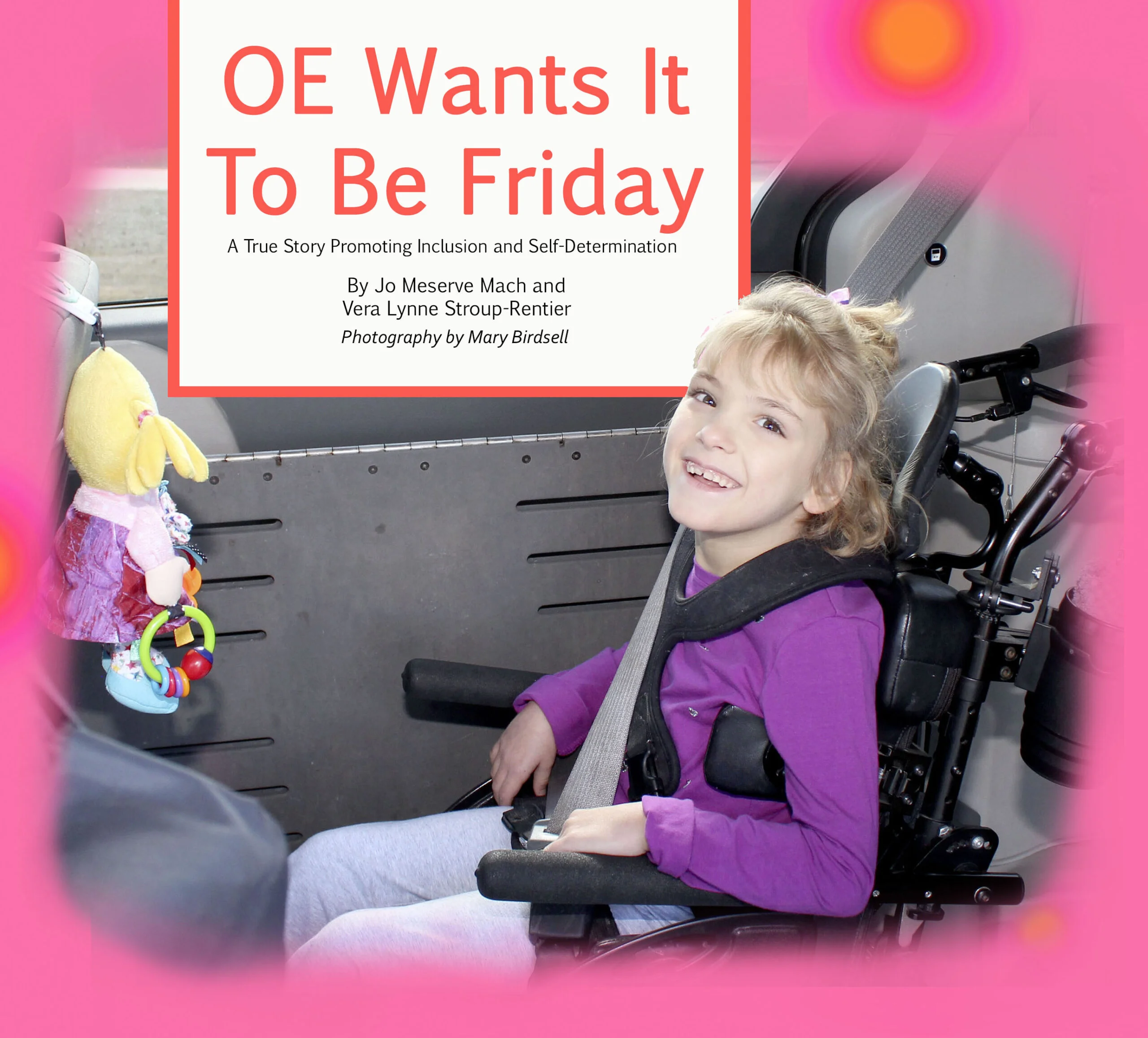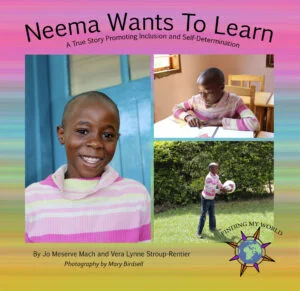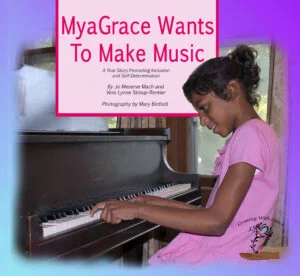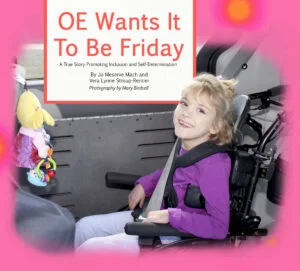It's not only fiction that shares great stories – non-fiction can do that too. US indie author Jo Mach, who originally planned to write fiction, describes how she came instead to share true-life stories of children with special needs in a series of non-fiction books, co-authored with Vera Lynne Stroup-Rentier.
Digger Deeper with Non-Fiction
Writing fiction has the charm of allowing the author to burst with imagination. Writing non-fiction has the challenge of uncovering the meaning behind the story the author is discovering.
I am in my sixth year of writing true stories of children growing up with special needs. I have followed my passionate belief that these children’s stories need to be told to the world.
Through the telling, I believe their stories help facilitate the inclusion of children with special needs into our communities.
How We Do It
I write in collaboration with my former co-worker and now friend, Vera. We bring different perspectives to each story. I have a background in working many years as an Occupational Therapist supporting families raising children with special needs. Vera has a background in Special Education and is a parent of two children with special needs. We see things differently. We hear things differently. When we bring our ideas and thoughts together we are able to get better stories.
How We Started
We are now writing our tenth book. Generally, we have just let stories come to us. As we began, Vera and I were visiting and she mentioned they were getting a dog. As time went by she shared how her younger son with special needs had unexpectedly become the dog’s caregiver. That story became our first book.
Working with a Photographer
The third woman on our team is Mary, a photographer and former middle school speech and theater teacher. She not only does our photography, she also designs our books and completes all the digital work. Mary is now a Pilates instructor and two of our books, from this past year, came as suggestions from her clients.
The book we are currently working on came about when I was standing at a car rental business. As my name was called, the woman at the counter recognized me as her son’s former Occupational Therapist. As we chatted, I asked her what her son was now doing and shared what I was doing. Our next book will be the story of her eight year-old son, who has autism, and how he is following his passion to learn to be part of a drum line.
Our Process
Over the years our process has become more defined. Vera and I meet with the family and complete an interview. They have something they are excited to share about their child’s participation in an activity. Our challenge is to dig deeper into what is happening around that participation and to discover what it means to the child.
We spend time observing the child participating in their activity to see his or her emotions and interactions. We ask more and more questions about what is involved. We look at relationships and we look for fun. We continue to ask questions as we work to discover a simple, yet meaningful way, to share the story.
Universal Meaning
We also look for universal messages. We are striving to share stories about children that any child can relate to as they are reading it. We want our books to demonstrate how children with special needs are children first. We share details of how the child may need to adapt to be successful in their activity, but we do not talk about their disability. Our books are books about children.
When I was young I always wanted to write children’s books. I assumed I would write fiction. I have files of stories I have written. But through writing non-fiction children’s books, I am able to build on my past work experiences and share my passion in a way that I hope makes the world a better place.
OVER TO YOU Has your career led you to self-publish books on the topic? We'd love to hear about your case studies.
Because publishing needs to be socially inclusive, here's a touching case study about @fmwbooks Share on XANOTHER GREAT POST ABOUT INCLUSION AND DIVERSITY IN PUBLISHING








[…] Writing: Sharing Stories of Special Needs Children Through Non-Fiction […]
[…] Writing: Sharing Stories of Special Needs Children Through Non-Fiction […]
[…] Writing: Sharing Stories of Special Needs Children Through Non-Fiction […]
I’m delighted to read about your focus for sharing stories of special needs children. I would like to share stories about my special needs granddaughter who is deaf, mentally slow, and developmentally delayed. She doesn’t speak, but we have learned so much from her in many ways. I hope to share about her more in print.
[…] Jo Mach Interesting and inspiring case study of an indie author who has applied her career experience to […]
I do very similar Jo!!! I was a social worker for 30+ years and love to write fiction about social work. Its not easy to know what a social worker does, if you ask someone what a doctor or nurse does most people could have a good guess, but the same is not true of social work, especially in mental health and child protection, my specialities. In the uk its a profession that’s often misunderstood, so I write fiction about it and so far my first book has been very much appreciated. My first book ‘Please Adopt Me’ is a romance set on a Scottish island and featuring one young woman in particular, my second is a case study based on a young woman. I’m just working on my 3rd & 4th! Most of social work is about supporting people through a difficult time, even if they end up being unable to care for their child, and I show how that happens.
I would have loved to read fiction or easy to read non-fiction on this when choosing a career, and who knows? Maybe we will inspire others to look at caring as a profession.
see http://www.lynnepardoe.com
Hi Lynne, it is wonderful to hear about your books. I can relate in many ways! Describing what Occupational Therapists do is also tricky. Than you so much for responding. Best wishes in all your great efforts.Jo